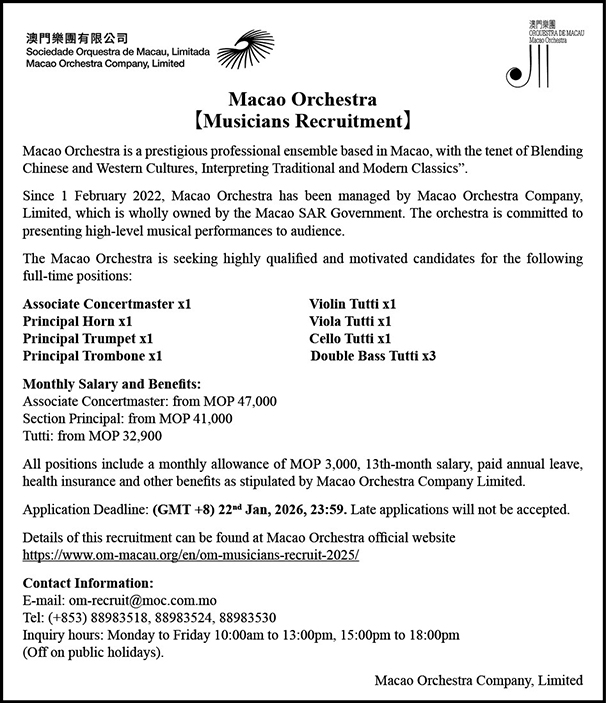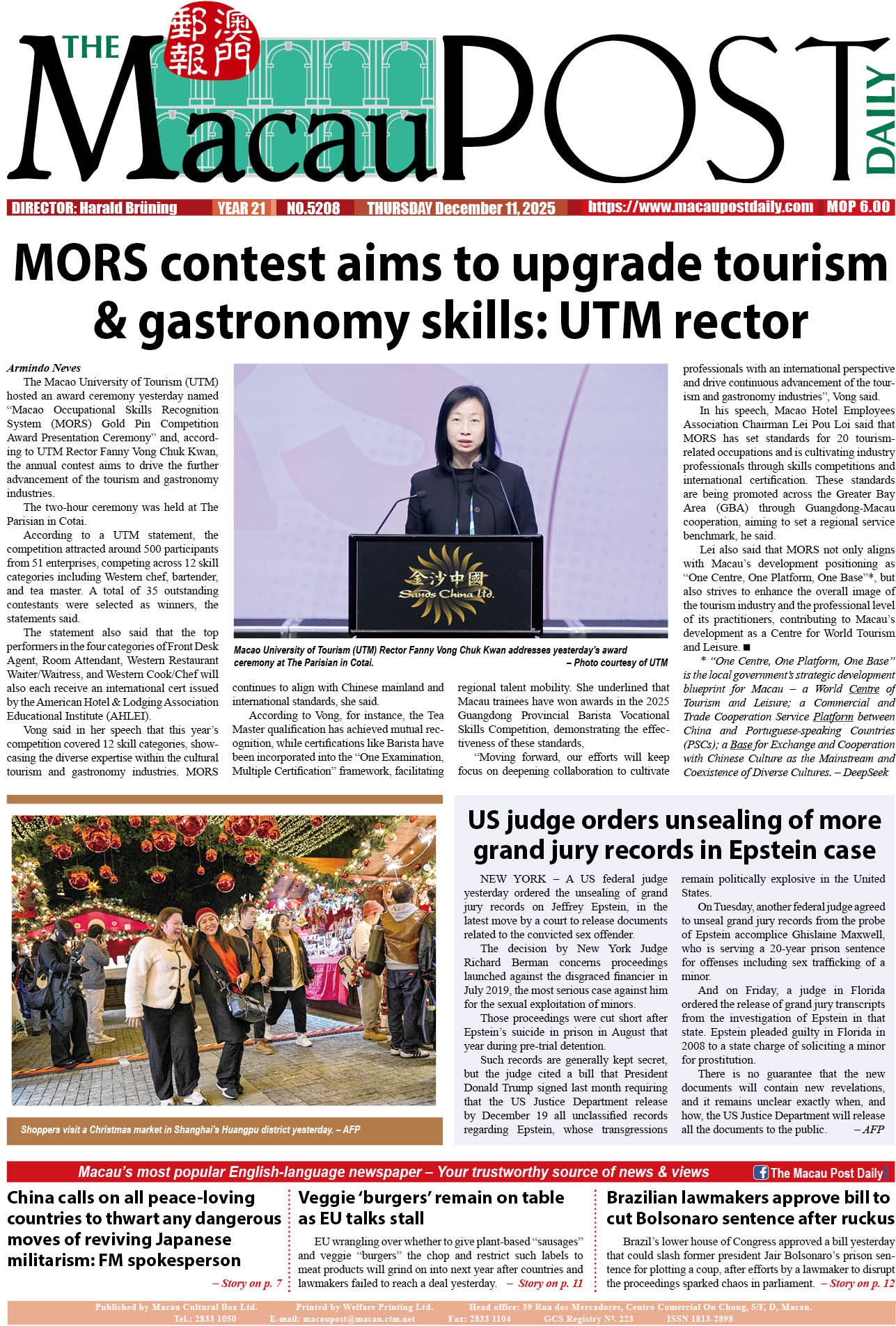BEIJING – President Xi Jinping yesterday urged a reinvigorated Communist Party of China (CPC) to take a stronger role in society and economic development to better address the nation’s “grim” challenges as he opened a twice-a-decade national congress of the party.
Speaking in the massive Great Hall of the People near Tiananmen Square, Xi laid out his vision of a ruling party that serves as the vanguard for everything from defending national security to providing moral guidance to ordinary citizens.
He struck a patriotic line throughout his speech, calling for the party not only to safeguard the nation’s sovereignty but also to revitalize Chinese culture, oppose “erroneous” ideology and promote religion that is “Chinese in orientation.”
“The great rejuvenation of the Chinese nation is no walk in the park or mere drum-beating and gong-clanging. The whole party must be prepared to make ever more difficult and harder efforts,” Xi told the over 2,200 delegates.
Hailing the start of a “new era,” Xi outlined a vision in which the party would lead China on the road to becoming a “great modern socialist country” by mid-century.
Xi is expected to get a second five-year term as party leader at the gathering.
Observers will be watching for signs of whether Xi, 64, may be looking to appoint a successor. While the nation’s presidency is limited to two five-year terms, the tenure of the party’s leader is bound only by tradition.
Xi has already distinguished himself from previous leaders, and is now “leading China into territory in which China is very close to achieving modest prosperity,” said Yang Dali, an expert on Chinese politics at the University of Chicago.According to Xi’s vision, “China would not only be a modern, socialist country but one that stands tall among the nations,” Yang said. “This message he delivered with vigor.”
The congress will largely be behind closed doors and is accompanied by extraordinary security measures. But the congress will see powerful players emerge in new roles and is a chance for Xi to publicly lay out his political and economic vision over the next five years.
Xi, in his three-and-a-half-hour address, said the nation’s “prospects are bright but the challenges are grim,” a rare acknowledgement of severe economic issues. He added that the party would have to take big risks and overcome “major resistance.”
Other Chinese leaders have regularly warned since the 2008 financial crisis that China’s economic growth faces “downward pressure” due to weak global demand that threatens export industries in the world’s second-largest economy. But Xi’s comments were unusual in a keynote speech meant to highlight the party’s confidence and long-range vision.
Among the grave issues Xi said were insufficiently addressed are a widening income gap and problems in employment, education, medical care and other areas.
He pledged to make high school universally available and promised to extend land-use contracts for farmers for another 30 years after expiration.
Xi hailed the nation’s growing presence in the South China Sea as well as his signature foreign-policy initiative, the Belt and Road (B&R) infrastructure investment project aimed at improving connections between China, Europe and Africa.
He also praised the party’s handling of domestic security, saying that social stability had been maintained and national security strengthened.
To achieve a “moderately well off society” by 2021 – the 100th anniversary of the party’s founding – and even greater national power and prosperity by 2049 – the centenary of the founding of the People’s Republic of China (PRC) – China needs continued economic growth and the lifting of millions out of poverty. The country is also rapidly expanding its military and political power.
Xi affirmed economic plans that call for developing state-owned enterprises (SOEs) that dominate industries including finance, energy and telecoms while also giving the market the “decisive role” in allocating resources.
Xi also emphasized that the authorities “must develop the public sector”.
However, he also confirmed official pledges to make the banking industry more market-oriented and to shrink bloated state-owned steel and coal industries.
Excess industrial capacity has strained trade relations with Washington and Brussels, which complain that a flood of low-cost mainland Chinese exports is depressing global prices for steel, aluminum and other goods and threatening jobs abroad.
Xi pledged that the party would have “zero tolerance” for corruption and exhorted members to resist “pleasure seeking, inaction, sloth and problem avoidance.”
The most tangible results of the congress will likely be personnel appointments.
China is run by the party’s Politburo Standing Committee, currently a seven-member body led by Xi, with Premier Li Keqiang his No. 2. While Xi and Li are expected to stay, the fates of others are determined by loose precedents governing retirement age. Four are expected to depart, while the status of party discipline boss and close Xi ally Wang Qishan appears uncertain.
The congress delegates will select a roughly 200-member central committee, along with more than 150 alternates, from a pool of around 400 candidates. The committee will then pick a 25-member politburo and the top Politburo Standing Committee, led by the general secretary. The makeup of the top body will only be known at the close of the congress when its members reveal themselves on stage in front of journalists, according to past practice.
– AP, MPD








